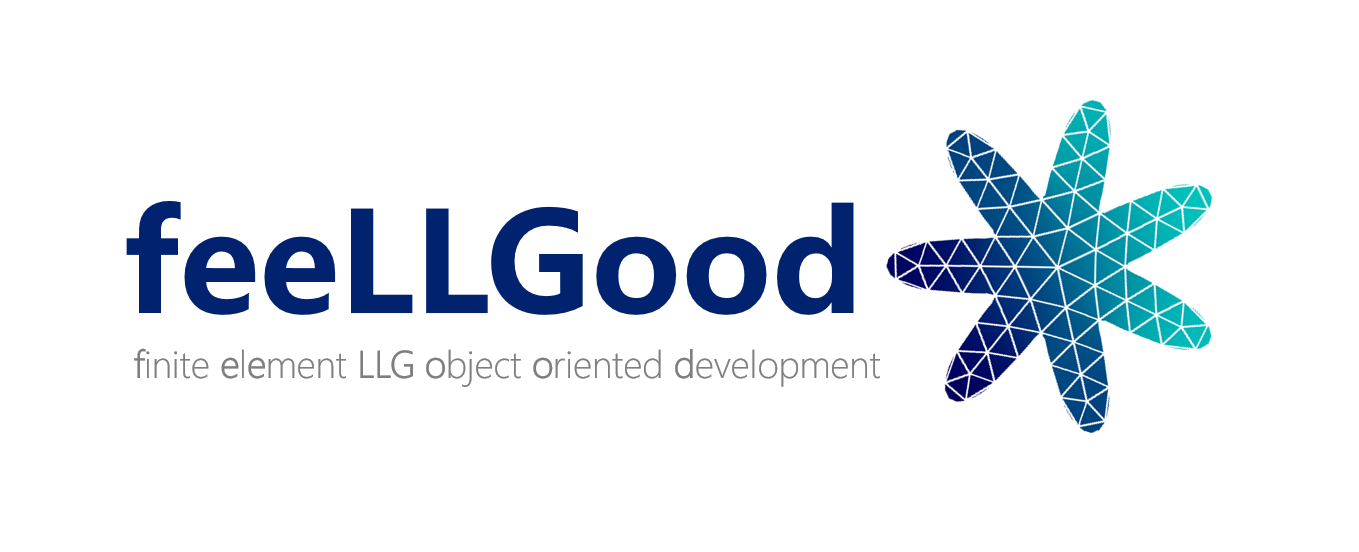feeLLGood – About
FeeLLGood is a micromagnetic simulation software based on the finite-element method. It is currently being developed at Institut Néel and Spintec: two academic research laboratories located in Grenoble, France. It has also benefited from contributions by individuals from other laboratories.
A bit of history
FeeLLGood is the brainchild of Jean-Christophe Toussaint, a physicist specialized in magnetism and numerical simulations. His original motivation was to build a finite-element solver for the dynamics of a magnetic system that rested on a solid mathematical foundation. In 2008, he teamed up with François Alouges and Pascal Jaisson, two mathematicians who had previously devised a finite element formulation of the Landau–Lifshitz–Gilbert equation – the equation governing the evolution of a magnetization configuration. The first implementation of feeLLGood, which ran on Matlab and Comsol Multiphysics, was very limited: it could only handle the exchange interaction, and only in two dimensions. It was also horribly slow. Yet, it showed that this finite element formulation was stable, which was in itself a promising result.
Jean-Christophe then reimplemented feeLLGood in C++, while adding the demagnetizing field interaction. This second version could successfully handle meshes with 50k nodes, but was still quite slow because of the costly computation of the demagnetizing field. In order to move forward, a faster way of computing the demagnetizing field was needed. From 2008 to 2011, Jean-Christophe and Evaggelos Kritsikis (then his PhD student) built the first 3D version of feeLLGood. In order to compute the demagnetizing field efficiently, they tried both the fast multipole method and the nonuniform fast Fourier transform. The latter was eventually dropped, and feeLLGood now uses the fast multipole method, via the ScalFMM library of Olivier Coulaud and Bérenger Bramas.
In 2014, with the help of Julia Steiner and François Alouges, the numerical accuracy was improved and reached quasi-second order in time. Over the next years, Magali Sturma and Daria Gusakova contributed the formulation of the spin transfer torque.
Since 2019, an open source version of feeLLGood is available on GitHub, maintained by Christophe Thirion and Edgar Bonet, with an emphasis on stability and usability (unit tests, documentation, etc.). Meanwhile, Jean-Christophe keeps research versions that serve as testbeds for new formulations. If successful, they will eventually land in the public version.
Contributors
Main contributors:
- J.C. Toussaint (Modelisation, micromagnetism, FEM, weak formulation, programming)
- D. Gusakova (Modelisation, micromagnetic and transport theory, beta-tester)
- E. Bonet (Programming, documentations, web-site, scripts)
- C. Thirion (Programming, documentations, web-site, scripts)
Other contributors to the source code, the documentation, web-site, beta-testing (in alphabetic
order):
- F. Alouges (FEM, weak formulation, solver convergence)
- B. Carvello
- O. Fruchart
- S. Hegde
- J. Hurst
- S. Jamet
- E. Kristikis
- A. de Riz
- M. Sturma
- A. Vaysset
Funding
 The continued development of feeLLGood is currently being funded by the French National Research Agency (ANR), through the DIWINA project.
The continued development of feeLLGood is currently being funded by the French National Research Agency (ANR), through the DIWINA project.
The ANR has also supported feeLLGood in the past through the projects MicroManip and MATEMAC 3D.
